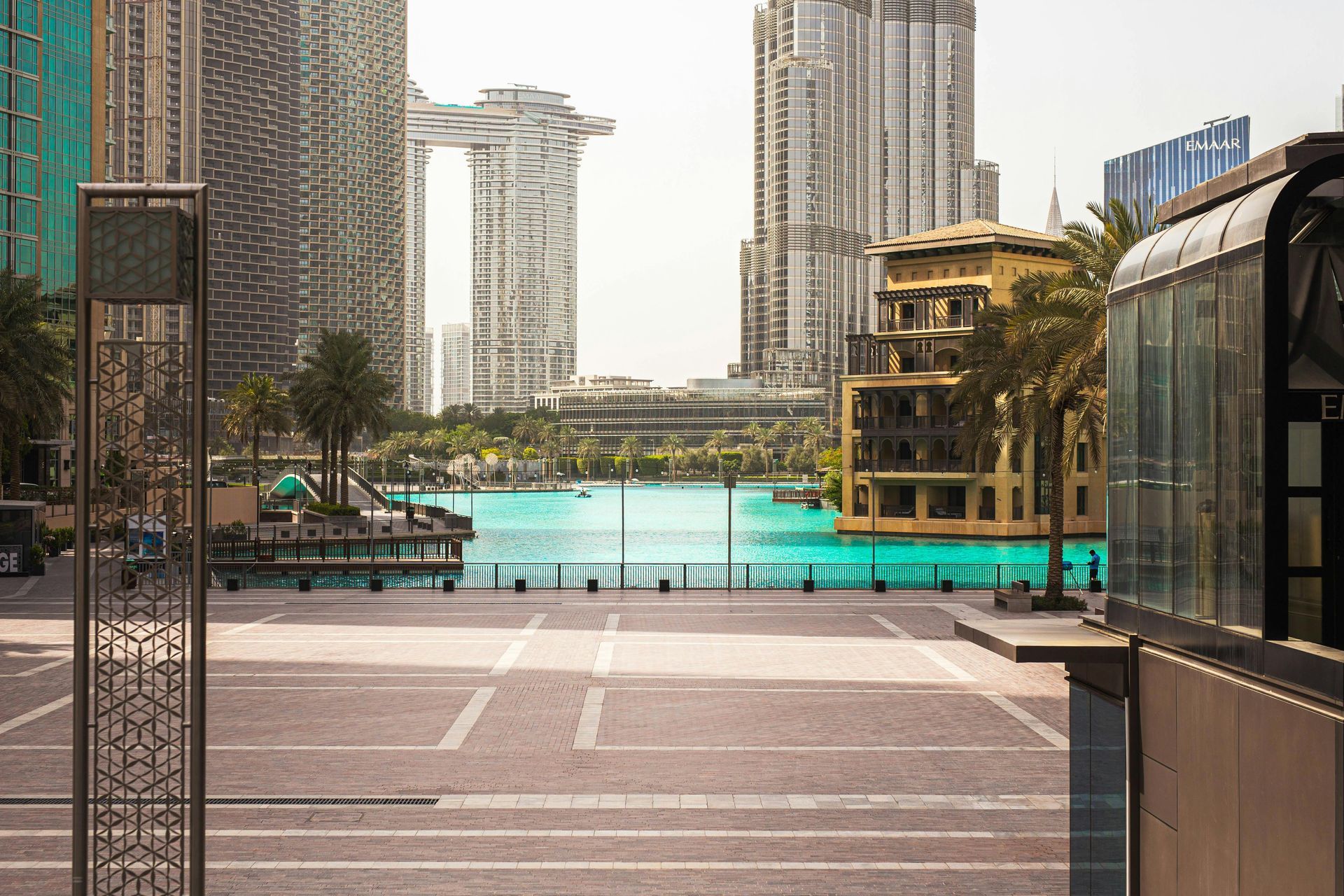Why Wealth Managers Are Moving to Dubai: What It Means for You
June 12, 2025
Dubai has become one of the fastest-growing wealth hubs in the world. Here's why.

If you’ve been hearing more about private banks, investment advisers, and wealth managers
setting up shop in Dubai, you're not imagining it. Dubai has become one of the fastest-growing wealth hubs in the world, especially for British and European advisers.
Contact Us
In the last year alone, over 60 new wealth management firms have opened offices in Dubai’s International Financial Centre (DIFC).
But why is this happening, and what does it mean if you're a high net worth individual, entrepreneur, or investor living in the UAE?
Why Dubai?
Dubai offers something many wealth managers are now struggling to find elsewhere: a stable, tax-efficient, and business-friendly environment.
While the UK has tightened its tax rules, especially for non-doms and those using trusts or complex structures, the UAE has continued to attract wealth with:
- 0% personal income tax
- No capital gains tax
- A strong legal framework under English common law (via DIFC)
- High quality of life and global connectivity
For clients, this makes Dubai an appealing base. For wealth managers, it’s an opportunity they can’t ignore.
What Wealth Managers Are Offering in Dubai
With this surge in presence comes increased service availability for clients. If you're living in the UAE or spending part of the year here, you can now access:
- Discretionary investment management
- Estate and succession planning
- Family office services
- Tax-efficient structures and cross-border advice
- Advice on UK IHT (Inheritance Tax) and pensions
These services used to be hard to find locally, but not anymore.
Who's Coming to Dubai?
The influx includes private banks and traditional discretionary fund managers, but also:
- Boutique investment firms
- Wealth tech platforms (offering digital tools for investing)
- Global tax advisers
The DIFC now hosts more than 410 wealth and asset management firms, up from 350 the previous year. New entrants include British firms reacting to UK tax changes and seeking to serve their clients abroad.
Why It Matters to UAE Residents
If you’re based in the UAE, especially as a British expat or someone with international assets, this is a golden opportunity to get high-quality wealth advice
locally.
Key reasons to take action now:
- UK tax changes are affecting British expats
- Inheritance planning is more important than ever
- The local market now has more competition, which often leads to better client service
- You no longer need to fly to London or rely on Zoom calls to manage your finances; top-tier advice is available here in Dubai.
Questions You Should Be Asking
- Is my current investment portfolio set up for UAE tax rules?
- How will UK inheritance tax apply to my estate?
- Should I structure assets through an offshore trust or foundation?
- Is my UK pension protected and efficient?
- Could I benefit from working with a local adviser who understands both the UAE and UK systems?
Final Thoughts
Dubai is no longer just a luxury destination or business stopover; it’s now a full-fledged global wealth centre. With top international firms setting up operations here, clients in the UAE now have access to world-class advice right on their doorstep.
Whether you’re planning for retirement, protecting family wealth, or exploring new investment opportunities, this is a perfect time to act.
At Mosaic Chambers Group, we specialise in helping UAE-based clients structure, grow, and protect their wealth. From inheritance planning to UK tax exposure, our team of dual-qualified advisers can offer practical advice with no jargon.
Contact us today to book a confidential conversation with one of our experienced UAE wealth advisers.

Navigating the UAE Employment Visa Process in 2026 Relocating to the United Arab Emirates for employment offers significant professional and financial opportunities. However, the UAE employment visa process is structured, compliance-driven and time sensitive. Understanding each stage in advance avoids unnecessary delays and protects both employer and employee from regulatory issues. Below is a comprehensive, easy-to-follow guide to the UAE employment visa process as it stands in 2026. Step 1: Securing a Confirmed Job Offer The UAE employment visa process begins with a formal job offer from a UAE-licensed entity. Only an employer registered with the relevant mainland authority or free zone authority can sponsor an employee. The employer becomes the visa sponsor and assumes legal responsibility for: Applying for the work permit Processing the residence visa Ensuring compliance with UAE labour law Covering government application fees (in most cases) Employees cannot independently apply for a standard employment visa without sponsorship. Step 2: Work Permit Application (Entry Permit Approval) Once the employment contract is signed, the employer applies for a work permit (also known as a labour approval) through the Ministry of Human Resources and Emiratisation (MOHRE) or the relevant free zone authority. Documents typically required include: Passport copy (valid for at least six months) Passport-size photographs Signed employment contract Attested educational certificates (if required for the role) If the employee is outside the UAE, an entry permit is issued, allowing them to enter the country legally for employment purposes. If the employee is already inside the UAE on a visit visa, status adjustment procedures apply. Step 3: Entry to the UAE (If Applying From Abroad) For applicants outside the UAE, the entry permit allows legal entry into the country. Once inside the UAE, the individual must complete the residency formalities within the validity period of the entry permit (usually 60 days). Timing is critical at this stage. Failure to complete the process within the permitted window may result in fines. Step 4: Medical Fitness Test All employment visa applicants must undergo a mandatory medical examination at an approved UAE medical centre. The test typically screens for: HIV Tuberculosis Hepatitis (in certain categories) The medical fitness certificate is a mandatory component of the residence visa application. Processing time: usually 24–72 hours depending on service speed selected. Step 5: Emirates ID Biometrics The applicant must apply for an Emirates ID, which serves as the UAE’s official identification card. This process includes: Biometric data capture (fingerprints and photograph) Identity verification The Emirates ID is linked directly to the residence visa and is essential for: Opening bank accounts Renting property Obtaining a driving licence Accessing utilities and telecom services Step 6: Residence Visa Stamping Following medical clearance and Emirates ID application, the residence visa is issued and stamped electronically against the passport record. Employment residence visas are typically valid for: 2 years (mainland companies) 2–3 years (depending on free zone authority) Once issued, the employee is legally resident in the UAE and may sponsor eligible dependants (subject to salary thresholds). Key Considerations in 2026 1. Free Zone vs Mainland Sponsorship Visa procedures differ slightly between mainland entities and free zone authorities. Free zones operate under independent regulatory frameworks, although federal immigration approval remains central. The choice between mainland and free zone employment has broader implications, including: Corporate structuring Tax residency status Social security considerations Family sponsorship options These should be assessed before finalising relocation plans. 2. Employment Visa vs Other UAE Visa Categories The UAE also offers: Green Visas (for skilled professionals and freelancers) Golden Visas (long-term residence for investors and high earners) Investor/Partner Visas For entrepreneurs and senior executives, an employment visa is not always the optimal route. Strategic structuring may offer longer validity and greater flexibility. 3. Tax Residency Implications The UAE does not levy personal income tax. However, relocating professionals must consider: Exit tax implications in their home country UK Statutory Residence Test (for British nationals) Split-year treatment Ongoing ties and centre-of-vital-interests rules Corporate tax exposure for business owners Inadequate pre-departure planning can result in unintended dual tax exposure. 4. Corporate Tax and Employment Structuring With the introduction of UAE Corporate Tax, business owners relocating to the UAE must assess: Whether they will remain directors of overseas entities Permanent establishment risks Substance requirements Intercompany arrangements Employment structuring must align with the broader corporate and tax strategy. Why a Structured Relocation Approach Matters Many professionals treat the employment visa as a simple administrative formality. In practice, it forms part of a much larger relocation framework that includes: Tax residency planning Wealth structuring Asset protection Banking arrangements Property acquisition Family visa coordination A piecemeal approach often creates long-term complications. How Mosaic Chambers Group Supports Your Move to the UAE At Mosaic Chambers Group, we provide integrated advisory services for internationally mobile individuals and entrepreneurs. We coordinate: Pre-departure UK tax planning UAE tax structuring advice Cross-border compliance Local regulatory compliance We work alongside trusted UAE-based partners to manage: Visa processing Company formation Corporate structuring analysis Family sponsorship applications Wealth protection strategies Relocating to the UAE should be strategic, compliant and financially efficient - not reactive. Speak to Our Advisory Team If you are considering accepting a UAE job offer or relocating your business operations to the Emirates, we recommend obtaining professional tax and structuring advice before finalising your move. Early planning protects your position, reduces risk and ensures your move to the UAE is commercially sound and fully compliant. Get in touch with our team today to begin your relocation strategy with clarity and confidence.

Thinking about moving to Dubai with your family?
We can help you assess eligibility, model the impact, and prepare a clear roadmap before you move.
Contact us to begin a confidential discussion.
Tailored advice for UK families, entrepreneurs, business owners and private wealth structures.
Cross‑border, multi‑jurisdict
